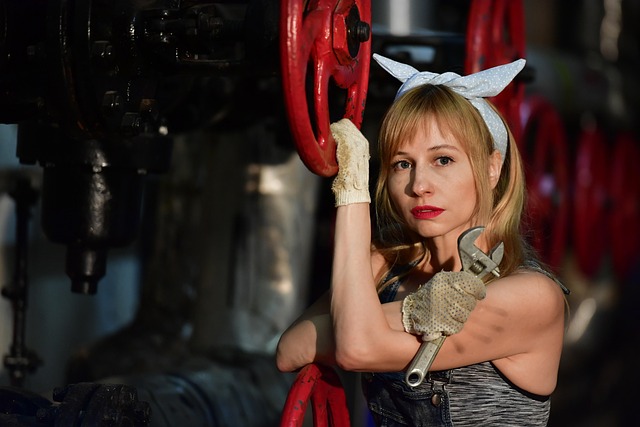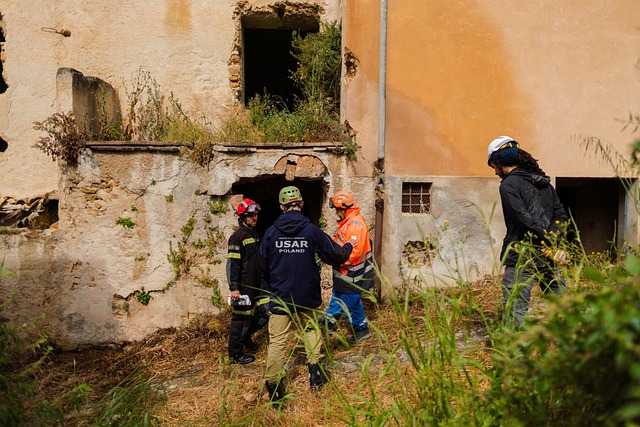Hot water heater problems range from safety hazards to minor inconveniences, requiring an experienced heating engineer for diagnosis and repair. Common issues include hot water shortages, unusual noises, leaking, and prolonged reheating times. Regular boiler maintenance involves insulating pipes, sediment buildup checks, thermostat adjustments, and visual leak inspections. An experienced heating engineer promptly identifies problems, implements solutions, promotes energy efficiency, and extends heater lifespan through regular maintenance and preventive measures.
Struggling with a hot water heater that’s not performing? Don’t let a faulty system leave you shivering. This guide equips you with the knowledge to swiftly tackle common issues, ensuring your comfort and convenience. From assessing problems like no heat or constant heating, we provide troubleshooting steps tailored by an experienced heating engineer. Plus, discover preventive maintenance tips to keep your hot water heater running smoothly, saving you time and money in the long run.
- Assess Common Hot Water Heater Issues
- Troubleshooting Steps for an Experienced Heating Engineer
- Maintenance Tips to Prevent Future Problems
Assess Common Hot Water Heater Issues

Hot water heater problems can range from minor inconveniences to serious safety hazards. As an experienced heating engineer, understanding these common issues is key to quick fixes and preventive measures. One of the most frequent problems is a lack of hot water, which could be due to an empty tank or a faulty heating element. Other issues include unusual noises, leaking at the base, or the heater taking longer than usual to reheat water.
When addressing these problems, it’s important to consider the type of boiler you have—a regular boiler vs. a combi boiler—as each has distinct maintenance requirements. For instance, insulating hot water pipes can help prevent heat loss in regular boilers. Additionally, creating and following a boiler maintenance checklist PDF can streamline upkeep, ensuring your heater operates efficiently and safely. Regular checks for sediment buildup, thermostat adjustments, and visual inspections for leaks or damage are crucial steps an experienced heating engineer would recommend.
Troubleshooting Steps for an Experienced Heating Engineer

An experienced heating engineer can quickly diagnose and fix hot water heater problems. Start by checking for common issues like a blown fuse or broken thermostat, as these are often easy fixes. Next, assess the water temperature setting; it might be set too low. If the problem persists, inspect the heater’s pilot light—it may have gone out. For older heaters, consider the possibility of sediment buildup, which can hinder efficient heating. Regular boiler vs. combi boiler comparisons are irrelevant if your system is malfunctioning; focus on troubleshooting specific components. Underfloor heating pros and cons can wait; right now, the goal is to restore hot water supply. Once the issue is identified, a reputable heating engineer can swiftly implement effective solutions, ensuring your home’s comfort and hot water availability are restored in no time.
Maintenance Tips to Prevent Future Problems

Regular maintenance is key to preventing hot water heater problems from arising again. An experienced heating engineer can help you implement preventive measures such as insulating hot water pipes to reduce heat loss and improve energy efficiency. They might also recommend installing heat recovery ventilation systems, which not only enhance energy savings but also improve indoor air quality by recycling warm air.
In between professional visits, homeowners can take simple steps like flushing the heater regularly to remove sediment buildup and checking for any leaks or corrosion in the tank and surrounding pipes. These routine checks can be done by anyone and will help extend the life of your hot water heater, preventing costly repairs or emergency services from heating engineers when issues do arise.
Addressing hot water heater problems promptly by following a structured approach can save time and money. An experienced heating engineer leverages their expertise to assess common issues, employ effective troubleshooting steps, and offer maintenance tips tailored for prevention. By combining quick action with proactive care, you can ensure your hot water heater operates efficiently and reliably for years to come.
